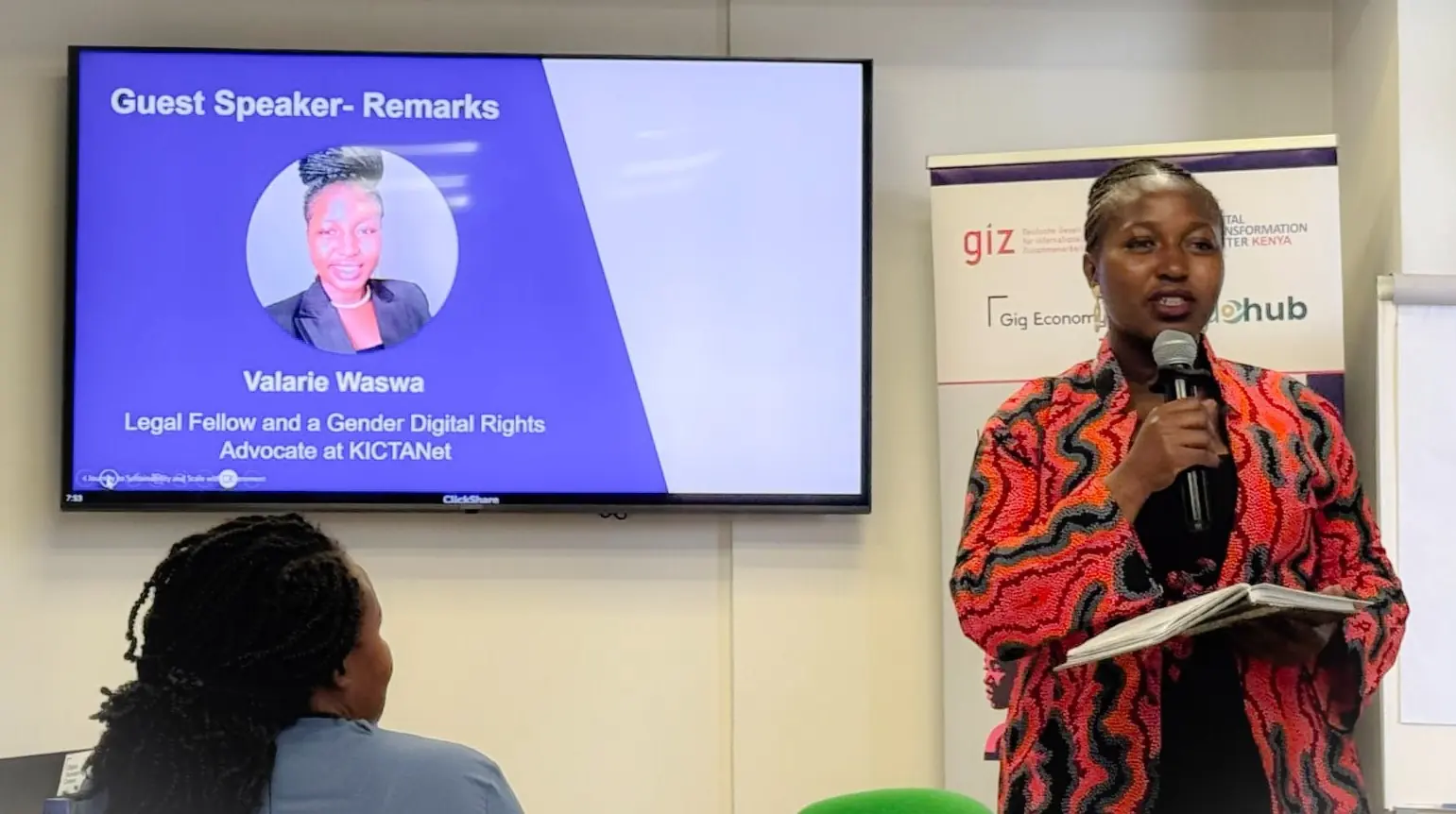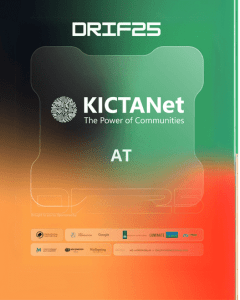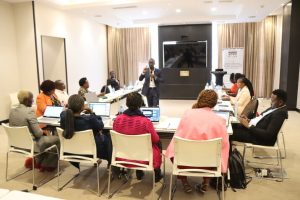By Valarie Waswa
The gig economy is transforming how Kenyans earn a living, with digital platforms opening up opportunities for flexible work.
However, this transformation hasn’t come without challenges. Many gig workers, especially women, face income instability, a lack of social protections, and systemic barriers such as gender discrimination.
These issues took centre stage at the Women in Kenya’s Gig Economy Policy Roundtable: Towards a Fair, Inclusive, and Equitable Gig Economy, an event organized by Eldohub, an education, innovation, and technology company that supports youth and women between the ages of 18 and 35. It brought together policymakers, industry leaders, civil society, and gig workers themselves.
Representing KICTANet, I delivered a keynote speech and later joined a panel discussion, where we unpacked how to build a fairer digital labour market that works for women.
A Timely and Necessary Discussion
The event, led by Eldohub is one of the partners offering advanced digital skills and employability for youth under the Strengthening Digital Communities Project. This project is led by KICTANet with support from the UK Government’s Digital Access Programme through the British High Commission in Nairobi, in collaboration with the Government of Kenya, the County Governments of Busia and Mandera and various partners.
The SDC project focuses on strengthening digital access, inclusion, and economic opportunities for underserved communities—especially women.
Keynote Speech: Beyond Participation to Leadership
In my keynote, I emphasized that women should not only be consumers of digital gig products and services but should also have a seat at the table as entrepreneurs, freelancers, and decision-makers.
While platforms like Upwork, Fiverr, and Bolt provide income opportunities, they still reflect global inequalities—many of them aren’t designed with African workers in mind and African freelancers often struggle with issues like delayed payments, algorithmic biases, and unfavourable taxation structures.
At KICTANet, we are working to shape digital policies that address these concerns. I highlighted some of our recent efforts, including:
- Our collaboration with GIZ on Kenya’s gig economy policy consultation project is helping shape regulatory discussions to ensure gig workers have better protections.
- Our engagement in the Strengthening Digital Communities project is focused on equipping underserved communities, particularly women, with digital skills and access to online work opportunities.
Panel Discussion: Local Solutions for Local Challenges
One of the questions during the panel was:
Should Kenya follow the path of other countries that are regulating gig work—such as requiring platforms to provide minimum wages and social protections?
While such regulations have worked in places like Spain, the UK, and the EU, I argued that Kenya needs a localized approach that reflects the realities of our digital labour force. Many international platforms already come with built-in biases—some discriminate against African workers, while others impose rigid taxation structures that disproportionately burden Kenyan freelancers.
To address these issues, my argument was that we must encourage, promote, and even implement policies that support the development of local and localized digital gig platforms. If we want to create sustainable jobs for women and eliminate bias, we need homegrown solutions that are tailored to the Kenyan context—platforms that understand our market, provide fair pay, and create better working conditions.
A Call to Action
I closed my keynote with this:
“Women must move beyond just participating in the gig economy—they must lead, innovate, and build their solutions.”
And during the panel, my parting shot was:
“We need policies and industry initiatives that promote and invest in local digital gig platforms. This is how we fight bias, create fair job opportunities, and make the gig economy work for Kenyan women.”
As KICTANet, we remain committed to advocating for digital policies that foster a fair and inclusive gig economy. Our partnerships—with Eldohub, GIZ, and FCDO, among others—are vital in this journey. Now, the real challenge is to move beyond discussions and take action.
The gig economy must work for everyone—not just the platforms, but the people. It’s time to make that a reality.
Valarie Waswa is a Legal Fellow and Digital Rights Advocate at KICTANet
60 total views , 1 views today




